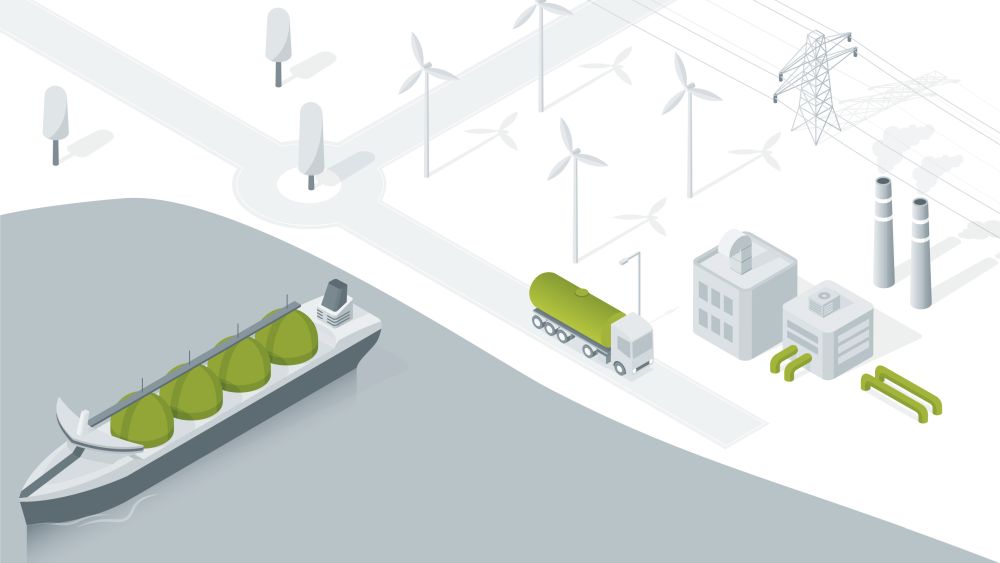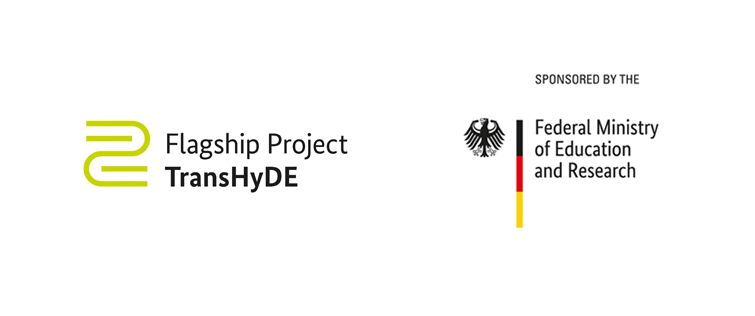| Duration: | 06/2023 - 11/2024 |
| Contracting Authority/ Sponsors: |
Federal Ministry of Education and Research (BMBF) |
| Project Partners: |
|
| Website: | Flagship project TransHyDE |
| Project Focus: | |
LNG2Hydrogen – TransHyDE Project: Making LNG Terminals Suitable for Hydrogen-based Energy Carriers
The "LNG2Hydrogen" project, which is being funded by the German Federal Ministry of Education and Research as part of the TransHyDE hydrogen flagship project, works on the possible conversion of LNG terminals for use with hydrogen-based energy carriers such as ammonia, methanol, LOHC (liquid organic hydrogen carrier) or SNG (synthetic methane). The technological, logistical, economic and regulatory requirements are analyzed. In addition, the technical and logistical challenges of onward transportation within Germany are analyzed. Finally, the project consortium evaluates the individual options and categorizes them economically.
The LNG terminals planned and being built in Germany are designed for the landing of natural gas from various importing countries. However, in order to achieve our climate targets, fossil natural gas must be replaced by green hydrogen and its derivatives. For the long-term utilization of the new LNG terminals, the question therefore arises of their conversion to green hydrogen derivatives in gaseous or liquid form.
The aim of the project “LNG2Hydrogen” is to develop a scientifically sound database and recommendations as a basis for decision-making on the sustainable use of LNG terminal locations as logistical hubs for hydrogen and its derivatives.
The services provided by Fraunhofer ISE in the project include the following points:
- analysis and evaluation of today's possible technical options for the sustainable use of LNG terminal infrastructures for hydrogen and identification of short-term research and innovation requirements
- technology-open consideration of Liquid Hydrogen (LH2), Methanol (MeOH), Ammonia (NH3), Liquid Organic Hydrogen Carriers (LOHC) and Dimethyl Ether (DME) as alternative hydrogen vectors
- concept and design of process engineering systems for methanol and ammonia import terminals
- evaluation of the expected costs, highlighting the techno-economic significance of the conversion, including consideration of the upstream and downstream transport chain (well-to-wheel analysis)
The TransHyDE hydrogen flagship project is developing and testing technologies for the transport and storage of hydrogen. The TransHyDE project LNG2Hydrogen deals with the possible conversion of LNG terminals for use with hydrogen-based energy carriers and is funded by the Federal Ministry of Education and Research with approx. 3.8 million euros (funding code: 03HY210 A-P).

